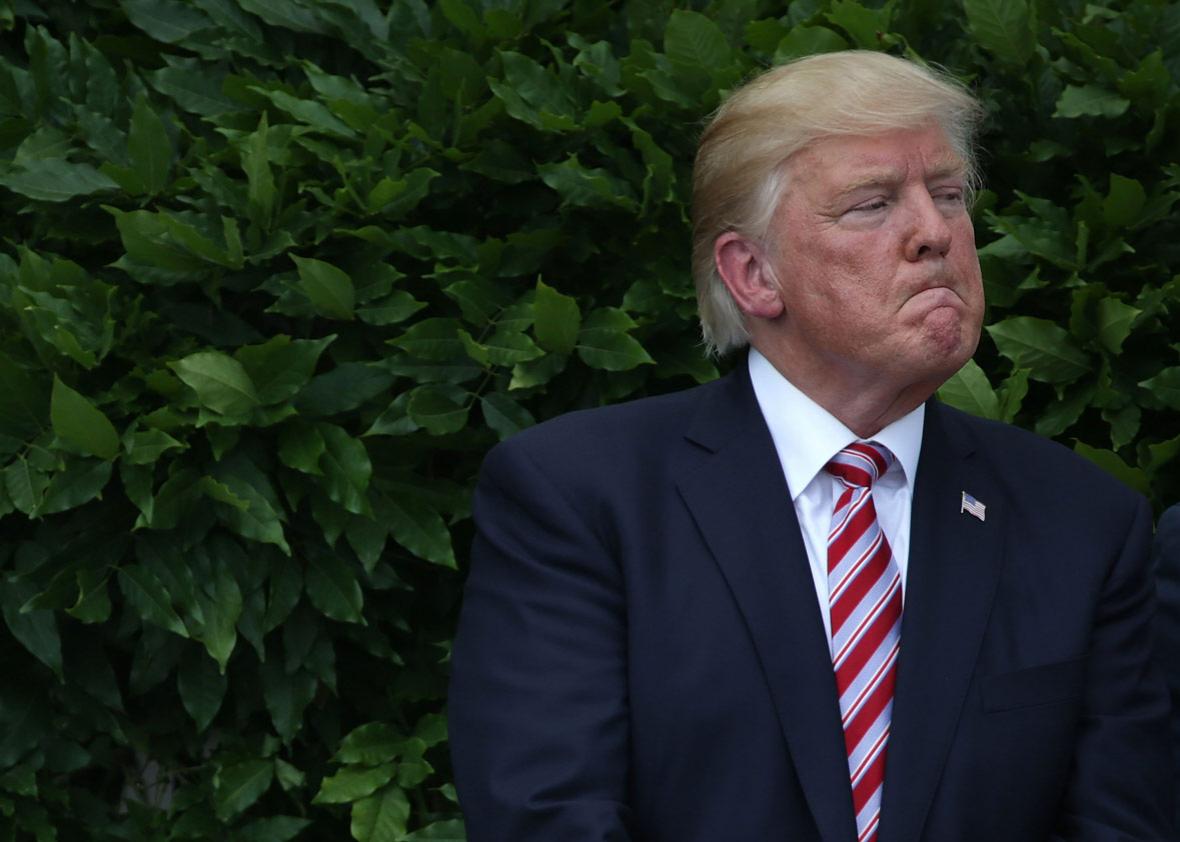Buried in a footnote in the 9th U.S. Circuit Court of Appeals’ unanimous opinion upholding the bulk of the injunction blocking Donald Trump’s travel ban, there is a moment of reckoning in which the panel addresses whether the president’s tweets constitute binding statements of executive intent.
In making a determination that the second version of the executive order exceeds the statutory authority granted to the president, the panel finds that the order “does not provide a rationale explaining why permitting entry of nationals from the six designated countries under current protocols would be detrimental to the interests of the United States.” The panel then drops a footnote to add the following observation about the president’s actual intentions in enacting the order:
Indeed, the President recently confirmed his assessment that it is the “countries” that are inherently dangerous, rather than the 180 million individual nationals of those countries who are barred from entry under the President’s “travel ban.” See Donald J. Trump (@realDonaldTrump), Twitter (June 5, 2017, 6:20 PM), https://twitter.com/realDonaldTrump/status/871899511525961728 (“That’s right, we need a TRAVEL BAN for certain DANGEROUS countries, not some politically correct term that won’t help us protect our people!”) (emphasis in original).
Put aside for a second the legal glory that lies in that “emphasis in original,” a parenthetical that does so much work while doing nothing at all. What’s really vital is that the footnote also does away with the claim that such tweets should be ignored or swept aside, noting a CNN piece that reported “the White House Press Secretary’s confirmation that the President’s tweets are ‘considered official statements by the President of the United States.’ ”
The question of how seriously the courts should be taking the president’s informal and spontaneous tweets is a serious one, and—as was discussed on this week’s Amicus podcast—a question that hasn’t thus far been treated with great rigor. In a new article on presidential speech and the courts, Cardozo Law School’s Kate Shaw notes that the judicial branch shouldn’t take casual presidential comments too seriously. She argues, however, that there is a subset of cases in which presidential speech reflects a clear manifestation of intent to enter the legal arena, among them cases touching on foreign relations or national security and those in which government purpose constitutes an element of a legal test. Based in part on Sean Spicer’s assurance that Trump’s tweets are official statements, the per curiam panel of the 9th Circuit has just ruled that the president’s Twitter commentary clearly falls in the category of speech that belongs in the legal arena.
What does it mean that courts may now begin to take the president’s tweets seriously? Beyond the implications for the travel ban, the notion that Trump’s Twitter feed is its own binding constitutional stream of consciousness invites all sorts of other delightful legal interventions. For one thing, the somewhat charming letter sent last week by the Knight First Amendment Institute at Columbia University now looks like a more serious complaint. The letter, which was sent by the Knight Institute’s Executive Director Jameel Jaffer, argues on behalf of a group of Twitter users that the First Amendment precludes him from blocking people on social media. The letter, which at least implies that it may be followed with a lawsuit, describes the Trump Twitter feed as a designated public forum and a curated series of official statements. Thanks to the 9th Circuit, that characterization now has more teeth.
The finding by the 9th Circuit also gives some force to another fanciful enterprise, the daringly named COVFEFE Act, a piece of legislation introduced Monday by Rep. Mike Quigley, a Democrat from Illinois. The Communications Over Various Feeds Electronically for Engagement Act amends the existing Presidential Records Act to include “social media,” a move that could make it illegal for the president to delete his tweets.
We’ve been told by the White House at various points to take the tweets seriously, to take them seriously but not literally, and to take them not at all seriously. The courts now seem to have decided to go with door No. 1.
I know what you’re thinking here, so let’s just say it aloud: Why are the federal courts wasting valuable time looking at the president’s Twitter feed when they could be assessing his executive authority? And why are legal journalists writing about it? One might answer those questions with yet another question: Why is the president wasting time he could be spending making the country safer by tweeting threats at the federal courts?
Your move, Mr. President. We’d submit that tweeting “see you in court” isn’t helpful given that the courts have now made plain that they see you, too.
